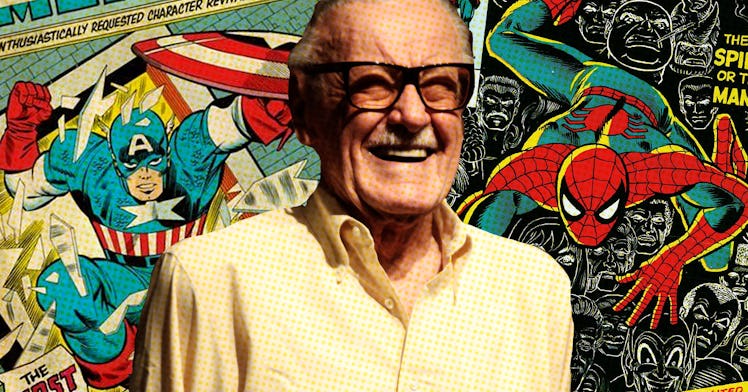Stan Lee’s Marvel Legacy is All About His Anti-Bullying Stance
At 95, the legendary comic book creator has died. Here's why his work matters for children and parents.

Today, at 95-years-old, Stan Lee — the publisher and longtime editor of Marvel comics — has died. And what he leaves behind for parents and children is a legacy of standing up to bullies. Yes, Lee gave the world some of the most dazzling superpowers any comic book fan could dream of, but the motivations and personalities of the heroes he created are more enduring. And that’s because Lee’s best work focused on underdog heroes who were willing to go up against cruel villains in control of the status quo.
In the 2011 Captain America film, Steve Rogers famously says “I don’t like bullies,” and though Lee didn’t create Captain America, he did begin his career writing comics with Steve Rogers. The third issue of Captain America Comic in 1941 was co-written by a young man named Stanley Lieber, writing under the pen name of “Stan Lee.” The rest is history. Lee was made an interim editor at Marvel at just 19-years-old, and pretty much stayed there for the rest of his life. But, the fact that the first hero he wrote for was Captain America is significant. Famously, Captain America fought the Nazis in Marvel comic books before the United States was involved in WWII. Even before it was politically fashionable to stand-up to the worst kind of bullies, Stan Lee knew this kind of bravery as imperative.
And part of what made Lee’s writing fantastic was his belief that young people were people, too. In other words, Lee found teenage sidekicks to be unrealistic, which is part of why the backstory for Cap’s best friend Bucky Barnes was changed by Lee. He didn’t want Bucky to be subordinate to Captain America, he wanted them to be equals. And so, when he turned Bucky into Steve’s old war buddy, that fact became part of the character’s origin story. Essentially, Lee believed having a teenage sidekick for Captain America created a built-in system where Bucky would be bullied. And so, he made the story more realistic, and much smarter.
But, the true brilliance of Stan Lee’s heroes really flourished in the sixties, when he matured and noticed the changing world around him. This was the decade of Spider-Man, The Incredible Hulk and the X-Men. With Spider-Man, Lee created (along with Steve Ditko) an unforgettable avatar for geeky teenage kids who loved science and reading more than they loved sports. With the Hulk, he allowed brain and brawn to be wrapped into one man, seemingly all at once, a potent metaphor we’re still reeling from to this day. And with the X-Men, Lee tenderly created a family of outcasts, people who needed the kindness of strangers to survive.
While it’s fairly common knowledge that Lee used the concept of X-Men as an allegory for civil rights, some of his progressive and big-hearted political beliefs came directly out of his own mouth, too in a reoccurring column in Marvel comics called “Stan’s Soapbox.” In these brief essays, Lee would speak directly to his readers — often very young children — and let them know exactly how he felt about bigotry, injustice and a whole host of other issues. In short, he was against that stuff. And would often end his lessons with the phrase “nuff said!” as though it was just common sense that everyone should be a good person. Of racists and bullies, Lee once said: “The only way to destroy them is to expose them — to reveal from the insidious evil they really are.”
And despite having cameos in nearly every single one of the popular movies based on Marvel comic book characters, Lee was exceedingly humble. “I never thought of myself as much of a success,” he said, a funny sentiment because it a sense it was true. Lee knew that in the minds of his young readers, the successful people were Spider-Man and Wolverine. Even though he had Stan’s Soapbox, Lee generally let his work speak for itself. The result? The pop culture world we live in today.
When Lee said “I guess one person can make a difference,” he may have been speaking of Black Panther or Captain America, but today, it seems like he was certainly speaking of himself. He will be missed, but thanks to his tireless work, his everyday heroics will never be forgotten.
This article was originally published on